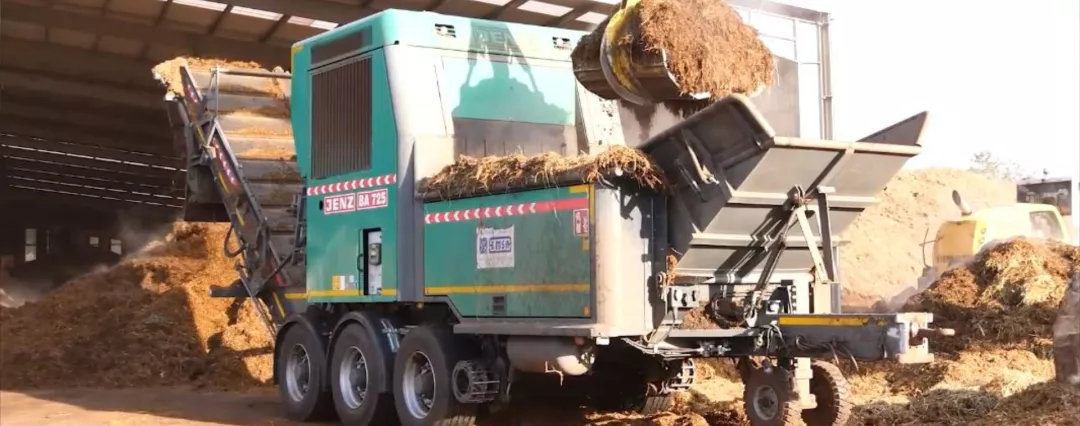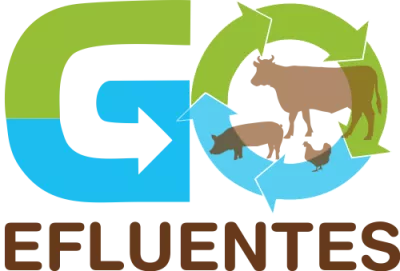Summary
GOEfluentes is an Operational Group (OG) from Portugal that aimed to use effluents from intensive livestock systems as a resource. The project developed concrete solutions related to the concepts of ‘circular economy’ and ‘zero residues’. The solutions in this OG contribute to increasing the efficiency of water and nutrient utilisation, reducing the environmental impact of livestock farming and adding value to what was, until recently, considered waste.
Keywords
GOEfluentes is an Operational Group (OG) from Portugal that aimed to use effluents from intensive livestock systems as a resource. The project developed concrete solutions related to the concepts of ‘circular economy’ and ‘zero residues’. The solutions in this OG contribute to increasing the efficiency of water and nutrient utilisation, reducing the environmental impact of livestock farming and adding value to what was, until recently, considered waste.
GOEfluentes aims to reduce and give value to the nutrient flows generated within three intensive animal production systems: dairy cows, poultry and pigs.
“The intensification of livestock systems results in a global loss of nutrients at various levels. Nutrient related issues include competition for the use of cereals intended for human consumption, low animal digestive efficiency, excess excreta and negative environmental impacts when manure handling is inadequate. Another reality relates to the high concentrations of holdings in certain regions, which limits their capacity to handle the waste they produce.”
GOEfluentes promoted resource efficiency, considering the entire farming system and ensuring sustainable development at local, regional and national levels. In all steps related to the management of these flows (production, collection, storage, recovery and reuse under local conditions), the aim of the recovery was not only to eliminate nutrient losses but also to reduce the exploitation of natural resources.
As part of its activities, the project tested, analysed and evaluated two solutions with different lines of products: bioremediation by black soldier fly (BSF) larvae and the use of biochar in livestock manure storage tanks to reduce ammonia (NH3) and other greenhouse gas emissions.
BSF larvae are effective in the bioremediation of waste. This is an economically and environmentally sustainable solution with a faster process compared to composting. Bioremediation leads to the production of secondary raw materials such as high-quality organic biofertilisers known as ‘frass’ and insect byproducts, which allow for the reintroduction of nutrients into the value chain and close nutrient cycles. Furthermore, these secondary raw materials resulted in a further reduction in expenses for the farmer.
With regards to biochar used in farming, it is useful for retaining NH3 and other nutritional elements contained in leachate, and making them progressively available in soil. GOEfluentes tested the impact of introducing this solution in the treatment of effluents. The outcome was a successful demonstration of the value of biochar in reducing NH3 and greenhouse gas emissions in septic tanks in intensive animal production units. The economic viability of applying this technology on experimental farms and the obtained valorisation of organic fertilisers were tested.
Based on its results, the project designed a roadmap for effluent management linked to farm characteristics and regional constraints, supported farmers’ decision-making on the adoption of more sustainable solutions, and contributed to supporting sustainable livestock systems faced with climate change and resource scarcity. In addition, the bioremediation process was later adapted to other types of agricultural waste, such as olive pomaces from olive oil extraction.
Background info
Since the establishment of EIP-AGRI in 2012, more than 3 400 OGs have contributed to the increased productivity and sustainability of agriculture and forestry in the EU. The EU CAP Network with the support of the Support Facility ‘Innovation and Knowledge exchange | EIP-AGRI’ organised the EIP-AGRI Innovation Awards to celebrate the great variety of innovative OG projects and their achievements. The awards recognise and reward outstanding EIP-AGRI OGs which have developed innovative practices, solutions, products and processes. The call was specifically for OGs that already completed their full projects. It opened at the end of 2023, and from the 240 applicants, five OGs were selected as nominees within each of the six categories. A seventh award was given to the public favourite
This OG was selected as a nominee for the EIP-AGRI Innovation Awards 2024 within the category ‘Climate change mitigation and adaptation’.
Contact Information
gap@iniav.pt
Olga Moreira : olga.moreira@iniav.pt

